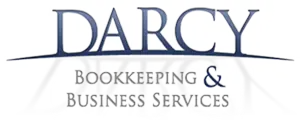


Unfortunately, due to Covid-19, many businesses have struggled to stay afloat. Business owners have struggled to pay staff, suppliers, and general running costs such as rent and electricity. One area which is not focussed on as often is tax debt. Owing money to the Australian Tax Office (ATO) can happen at any time, but it has become much more prevalent due to the pandemic. What happens if you find you owe the ATO money? Fortunately, there are some options for you.
The first thing you should do is speak to the ATO and inform them you are having difficulty. They will look upon you more favourably if you notify them early and demonstrate that you are willing to pay the money you owe and are seeking assistance. They will also do more for you if you have good payment and lodgement history. The ATO has a dedicated section with staff who are trained to help people in this situation. Explain why you are having trouble paying. They will examine all of your income, expenses, assets and liabilities to work out what you can afford to pay. There are various options they can offer you.
For individuals or sole traders, the ATO may be able to release you from some, or all, of your tax debt if you fall under the criteria of “serious hardship”. The ATO considers you to be in “serious hardship” when payment of the debt would leave you unable to provide food, accommodation, clothing, medical treatment, education or other necessities for yourself, your family, or other dependants. Companies, trusts and partnerships cannot apply to have tax debts released.
If you are a business or not-for-profit and can’t pay your tax or super on time, there are still plenty of options available to you. Depending on your circumstances, the ATO may:
The ATO can provide you with reliable advice and information about your tax obligations and rights as a business operator, but they cannot offer financial advice. For that you need to contact a tax practitioner, accountant, or financial adviser. If you find yourself owing money to the ATO, there are many ways a professional can help you
A tax agent will ensure you lodge your activity statements and tax returns on time even if you can't pay by the due date. In doing so, you will avoid a penalty for failing to lodge on time and the ATO will know that you are trying to comply with your legal obligations.
A tax practitioner is trained to identify the underlying causes of cashflow and payment difficulties and can help you to understand what’s happening in your business finances, so you can make smarter decisions. Your problem could be due to poor cash-flow management, inefficiency, or other business-related issues. A good accountant can devise a plan for getting your business back on track and work with the ATO on a payment strategy.
You may be also eligible for priority processing of your tax return if your business is experiencing financial difficulties. A tax professional can apply on your behalf and assist you by ensuring you have all the necessary documentation required by the ATO.
If the amounts you owe are under $100,000, your registered tax agent or BAS agent can propose a payment plan. Your tax agent knows you and your business more intimately than the ATO and can propose a more tailored plan that suits you and your business more than a plan the ATO might offer.
For businesses whose GST turnover is less than $75,000, you may be able to cancel your GST registration, remain registered but report and pay your GST annually or monthly, or continue with your current registration and reporting option. Again, your tax agent can advise which would be the best option for your business.
If you are reporting and paying pay as you go (PAYG) instalments, the ATO may allow you to vary the amount or rate for the current income year if your business income is reduced. A BAS agent will know how to work out the figures and lodge a variation for you on your next BAS or instalment notice.
If you don't pay the ATO the amounts you owe on time, they can charge interest on your unpaid amounts, or take any refunds or credits you receive in the future to repay the amounts you owe.
If you demonstrate an unwillingness to work with the ATO to address your debt, or repeatedly default on agreed payment plans, they can take stronger action. They can issue a notice to your bank or suppliers which will require them to pay any money owing to you directly to the ATO. This would damage your business reputation considerably.
Tax debt could also end up in your credit report which will be detrimental to any future applications with banks or lenders.
In the worst case, the ATO can take you to court who can then order you to pay your debt or issue you with a bankruptcy notice.
Businesses are legally obliged to meet their tax obligations. Here's a great resource to help you learn more about what you need to know about tax and debt: Understanding Debt Taxation And What Every Business Owner needs To Know
Notifying the ATO early and getting expert advice and help are the best ways of paying off tax debt, helping your business stay both healthy and compliant, and avoiding much bigger problems in the long run.
